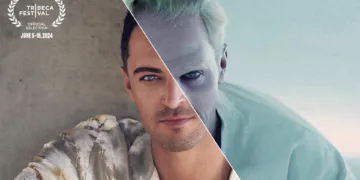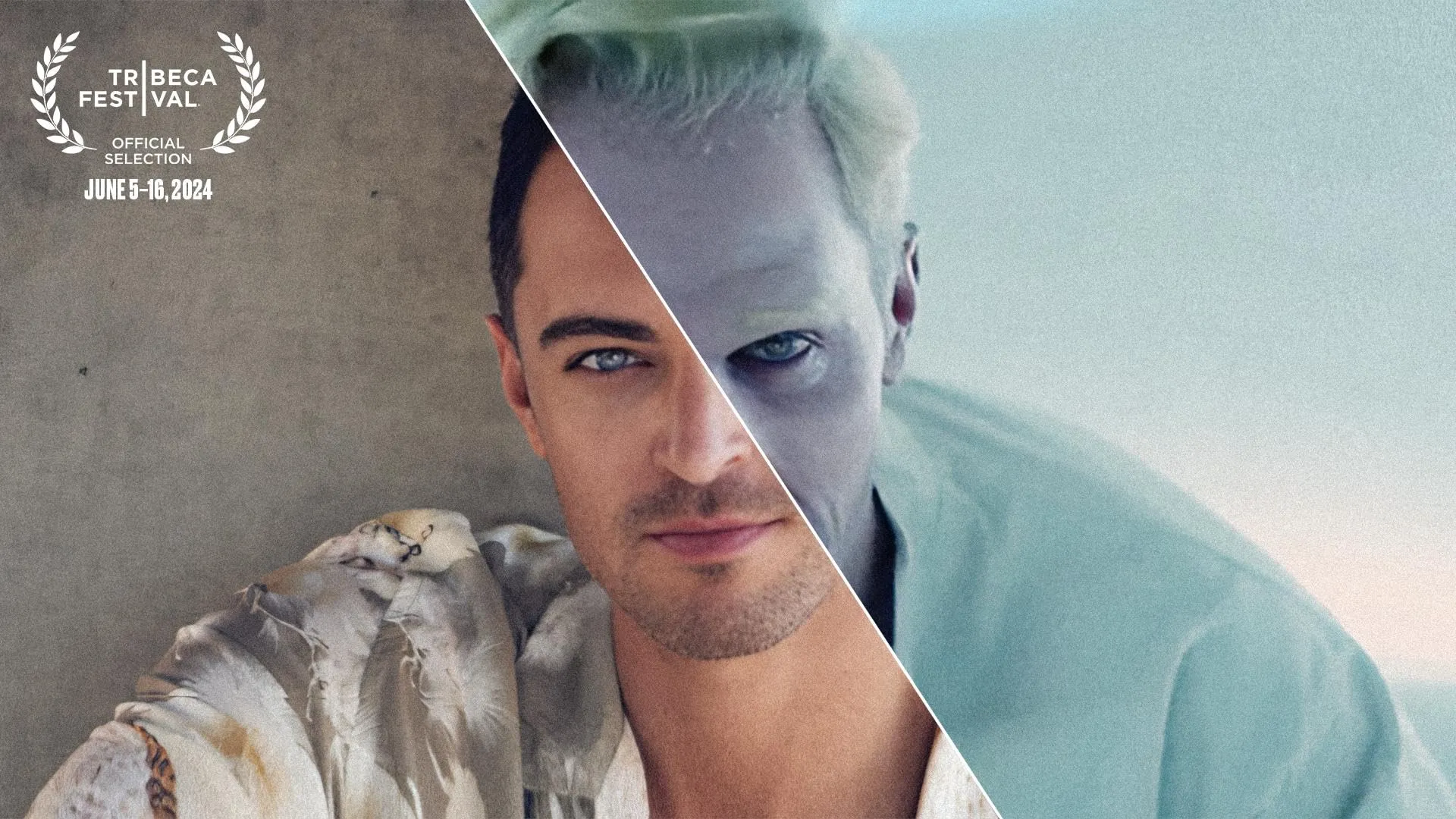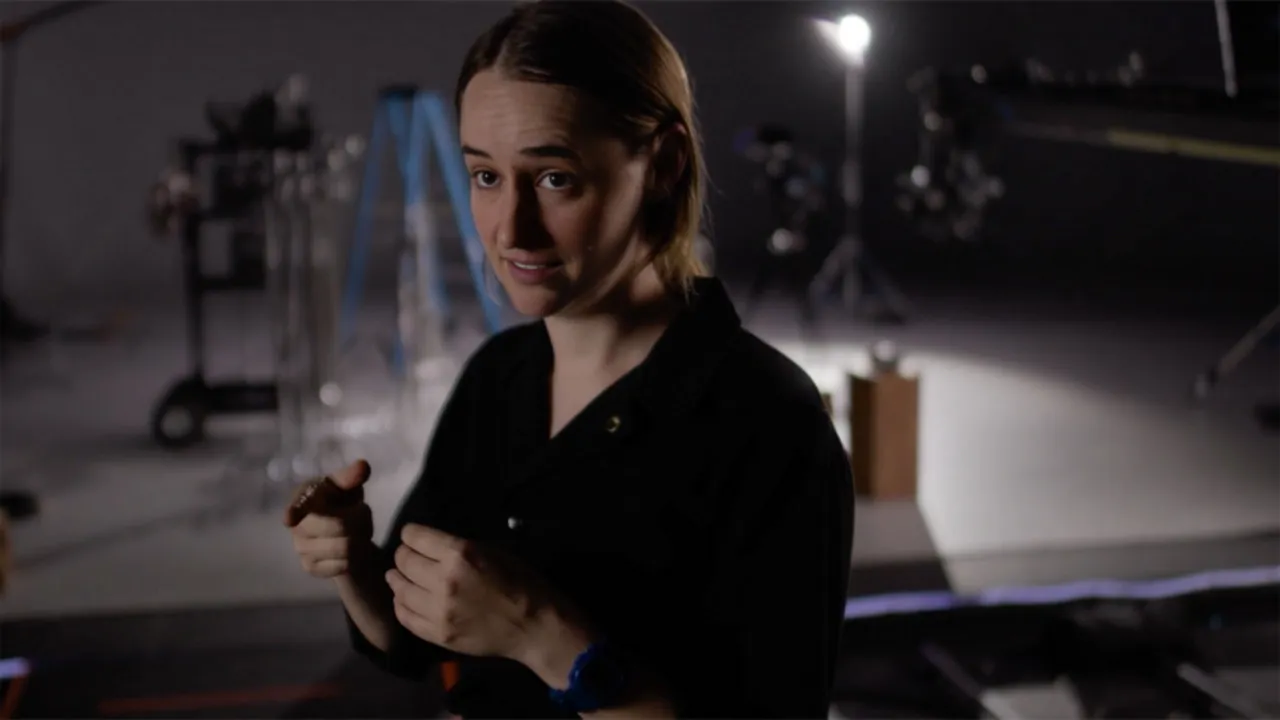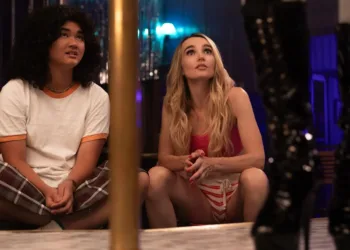Zach Horwitz had spent years crafting an image, telling just the right lies and showing just the right papers to make people believe in his success. As an actor in Los Angeles going by the stage name Zach Avery, he convinced investors he had struck gold by licensing indie films to streaming giants. But it was all an illusion—his company 1inMM took in over $650 million without ever making a legitimate deal.
Bad Actor: A Hollywood Ponzi Scheme shines a light on just how Horwitz/Avery, as he’s known, managed to fool so many for so long. Director David Darg takes a close look at Zach’s background and unpacks the intricate web of falsehoods he spun. Through interviews with victims and recreations starring Hollywood talent, it reveals the mechanics of the scheme and its impact on people’s lives.
Yet Bad Actor does more than just recount criminal facts. By scrutinizing Zach’s deceptions, it sparks questions about the nature of truth and perception. How much do outward displays shape what people believe, and when do unrealistic dreams cross into deception? In exposing one man’s lies, this documentary examination also offers insight into human vulnerability.
Unraveling the Deception
Zach Horwitz grew up enveloped in lies. As a star football player in small-town Indiana, he spun tall tales that blurred fact with Hollywood fiction. After college, he drifted through short-lived careers until landing in LA, where he became Zach Avery, a minor actor with big dreams.
It was there that Avery launched 1inMM Productions, presenting it as an independent licensing company securing films’ international rights. He convinced investors they were getting in early, promising huge returns once Netflix or HBO came knocking. But there were no legitimate deals—just forged documents and fabricated correspondence.
Through smooth charm and apparently rock-solid documentation, Avery drew in millions from friends and strangers alike. They believed they’d struck gold funding indie flicks featuring real stars. In truth, 1inMM was a complex house of cards. Avery juggled ledgers with fake contracts and digital trickery to keep the ruse afloat.
Over a decade, Avery’s web of deceit pulled in an estimated $650 million without a single legit movie deal. He lived large on other people’s money, partying with celebrities and buying mansions. But victims’ lives were forever altered, families losing entire livelihoods to his gilded fraud.
When it all collapsed in 2021, the full scope was staggering—a vast Ponzi scheme of unprecedented scale, targeting hundreds through Avery’s charisma and Hollywood-backed façade. As Bad Actor reveals how one man spun fiction into fortunes, it shines a light on the dark realities often hiding just beneath showbiz glitter.
Casting Shadows of Deception
With Horwitz behind bars, the filmmakers had to get creative to bring his story to life. At the core of Bad Actor are gripping re-enactments, made possible through a unique casting process. Directors visited auditions where hopeful actors read for roles, from Horwitz to friends and family.
But these scenes served a deeper purpose—probing how performers perceived the real individuals. One by one, they offered frank insights into Horwitz’s psychology and impact on victims. Their perspectives enriched understanding where simple facts failed.
Still, re-enactments could only do so much. The film draws wider context from interviews with those closest to the case. Victims like Craig rawly describe the callous human toll, families bankrupted by blind trust. Journalists who first uncovered Horwitz’s scheme provide a clearer sense of scale.
Experts lend their viewpoints too. An economist outlines the mechanics of Horwitz’s pyramid scheme. A psychologist offers insight into the narcissism driving such deception. Even FBI agents involved in the investigation offer their take on how one man so skillfully manipulated hundreds.
Through weaving such testimonies with fictionalized scenes, Bad Actor breathes multidimensional life into a complex true story, illuminating not just the blackened details of crime but revealing shades of truth far more elusive. In no small part, it’s this nuanced documentary approach that helps audiences understand fatal flaws in the shiny veneer of dreams sold by Hollywood.
Behind the Mask
Talking to those who knew Horwitz way back, it’s clear deception was ingrained from a young age. High school pals recall tall tales about accomplishments that never happened. Even then, he spun fiction with conviction.
What drove someone to such compulsive dishonesty for decades? Forensic psychologists point to narcissism—a need to puff himself up at others’ expense. As one victim said, Horwitz craved feeling important to live an illusory life as a Hollywood player.
Yet beneath the magniloquent lies, he proved a master manipulator. With charm and well-crafted documents, Horwitz held together an extraordinary fraud for over a decade. He lived in LA’s most expensive mansions, while lesser talents saw their savings wiped out forever.
Victims opened a window into real trauma during raw interviews. Horwitz betrayed close friendship to rob Craig of his nest egg. For others, the cost was retirement plans or kids’ college funds—all gambled on pretty words from a scam artist kingpin. By the time the truth caught up, the damage was irreparable.
Bad Actor shines needed light on real people whose lives were upended. If Horwitz endlessly chased superficial status, this film ensures the human toll can’t be forgotten—a sobering message for all tempted to believe only surface images.
Beyond the Illusion
For Zach, LA was the ultimate fantasist’s playground. Here, imagined star power mattered more than any acting skills. And for years, he lived large, believing the world of his own fabrication.
Bad Actor unravels the schism between Horwitz’s hollow reality versus the shiny mirage he always projected. While conning friends into funding dreck like Farming, he partied with the real celebs his crime bought him access to. The documentary savors dark humor in exposures of his abysmal on-screen talents alongside extravagant fakery.
More unsettling are the questions the film awakens about perceptions. Just how much do we shape our own realities through selective publicity? And at what point does aspirational storytelling warp into dangerous deceit? By underscoring flaws in Horwitz’s veneer, it prompts self-examination on how easily charm persuades us to ignore buried truths.
Of course Horwitz’s deceptions caused very real harm, ruining lives through financial wreckage. But his extreme case also serves as a cautionary parable—a reminder for an image-obsessed culture to see beyond synthetic personas and value substance over just superficial signs of success. Bad Actor burrows deeper than any documentary crime tale to probe darker, unknowable psychologies driving dreams gone nightmarishly wrong.
Shattering Illusions
Bad Actor starts like any true crime film—but save the biggest revelation for last. Without spoiling specifics, the movie pulls back the curtain on its own production in startling style.
The intent isn’t cruel gotcha tricks but forcing perspective. By toppling expectations of what viewers saw, it aims to mimic the disorienting effect of Horwitz’s deceptions. Just as he played society, the film plays with form to deliver sobering questions about credibility.
This climactic left turn certainly divides audiences. Some find it a hollow stunt that ruins investment in the story. Others see it executing a larger theme—that none of us are impervious to clever distortion, as reality often hides complexity that perception alone can’t grasp.
Most strikingly, it sparks an examination of non-fiction genres and how much interpretation shapes purported facts. At a time when deceit spreads like wildfire, maybe filmmakers should challenge passive trust more—as uncomfortable as that may feel. Perhaps in deconstructing one con man’s mind games, Bad Actor ultimately serves truth by keeping its viewers thinking.
Conclusion
From tall tales in high school to the multimillion dollar falsities of 1inMM, Zach Horwitz built an incredible career out of deceiving others. Bad Actor lays it all out for viewers—from his roots to the downfall, leaving no mask intact.
What begins as another true crime watch becomes much more. Beyond rehashing shocking financial fraud, the film holds a mirror to societal failings. It challenges our willingness to accept surface images over the harsher truths below. And in dismantling one man’s endless fabrications piece by piece, it sparks real pondering about reality’s relationship with its portrayals.
Even after credits roll, this story lingers. Not only did Horwitz scam hundreds from their livelihoods, but the deep questions raised by this documentary have much farther reach. In a time when even fact is polarized, maybe more films should sow doubt in simplistic claims—and make audiences think harder about what’s real and what’s just a well-crafted show. By shining light into dark deceptions, Bad Actor offers an unsettling caution that every viewer would do well to heed.
The Review
Bad Actor: A Hollywood Ponzi Scheme
With unflinching investigation and cultural nuance, Bad Actor tells far more than a headline-worthy crime story. It burrows beneath surface deceptions to challenge viewers in thoughtful ways. While deconstructions of truth can divide, this film uses an incredible real-life tale to start important conversations on perception versus fact. For stirring lingering questions in place of easy answers, it earns high praise.
PROS
- Thoroughly unpacks the psychological and sociological aspects of Horwitz's deception.
- Uses an engaging documentary format, including re-enactments
- Prompts meaningful discussion around themes of perception vs. reality
- Crafts a complex profile of the perpetrator beyond headlines
- Visual storytelling draws viewers in for serious ideas.
CONS
- Potentially divisive climax may undermine some viewers' trust.
- Could spend less time on methods and more on victim impact.
- Over-relies on tropes of the true crime genre at points
- Fails to get full participation from Horwitz and his inner circle
- More could be made of cultural context around Hollywood dreams.



















































Discussion about this post